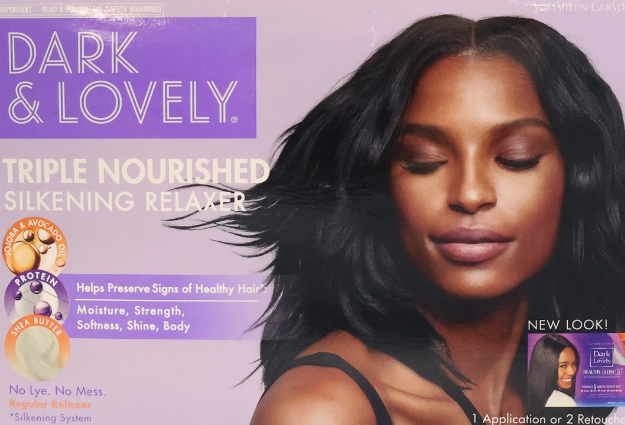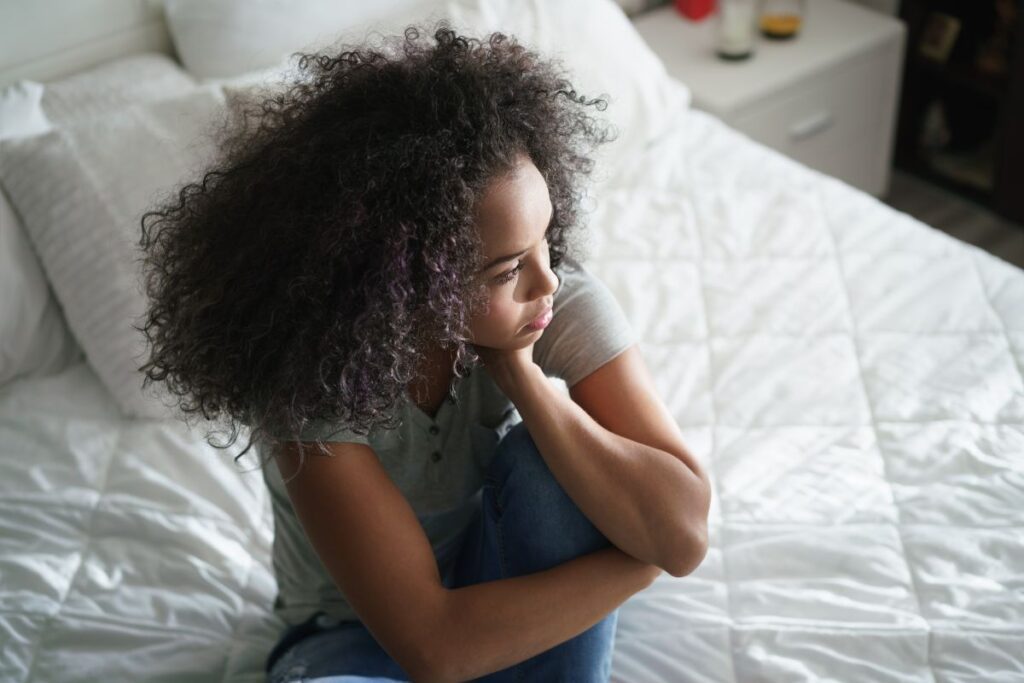If you’ve used any kind of relaxer, contact our Hair Relaxer Lawsuit Lawyers at 866-817-3187. We can answer all of your questions.
Texas Jury Awards $61M in Products Liability Case Against Honda After Car Wreck |
Home - Hair Relaxer Lawsuit
Hair relaxers are a major influence on American culture—primarily in Black and Brown communities. It’s estimated that 200 million Americans use these products each year. However, many don’t realize these products may have deadly consequences. Our Hair Relaxer Lawsuit Lawyers are pursuing claims for those harmed by companies who put profits over people.
Millions of women with kinky-curly hair share similar stories about the first time they got a hair relaxer. Along with these stories, many have shared stories about health issues in line with what studies show may have been caused by relaxers. As it stands, thousands of women will potentially file lawsuits against hair relaxer manufacturers after receiving a uterine cancer diagnosis.
Relaxers are linked to several health conditions, most notably uterine cancer. Our law firm is pursuing lawsuits against several hair relaxer companies responsible for creating toxic hair products. Our Hair Relaxer Lawsuit Lawyers are pursuing these claims in all 50 states.
These women and the families who love them can potentially receive significant hair relaxer lawsuit settlements.

Determine your eligibility by filling out our convenient form above.
Schedule a free consultation with an attorney for a case evaluation.
Sign a contract with our Hair Relaxer Lawsuit lawyers to represent you in these claims.
A chemical relaxer is a hair product people with tight curls use to straighten their hair permanently. Colloquially in African-American populations, relaxers are called perms. They can be performed by a licensed cosmetologist, in a barbershop, or at home with a home kit. As new growth comes in, retreating the hair every 6-8 weeks is required to maintain a consistent appearance.
A relaxer is applied directly to a person’s hair and then rinsed off after a certain amount of time has passed.
There are several different types of hair relaxers, with the most popular for home use being no-lye relaxers. Other types of relaxers include the following:
If you’ve used any kind of relaxer, contact our Hair Relaxer Lawsuit Lawyers at 866-817-3187. We can answer all of your questions.


Black American women are 60% of hair relaxer customers. As such, these products typically feature images of Black women or girls on the boxes. Relaxers have fallen out of favor among many consumers over health concerns about the product’s ingredients. Research continues to accelerate the decline of relaxers as they pose an increased risk of certain cancers.
Currently, the research best supports a link between uterine cancer and hair relaxers. These lawsuits are in the very early stages and still have the potential to include other forms of cancer. If you believe your or your loved one’s hair relaxer caused uterine cancer, our Hair Relaxer Lawsuit attorneys can help.
Relaxers are harmful. In October 2022, the results of a study on the link between hair relaxers and cancer published in the Journal of the National Cancer Institute found that women who use relaxers are more than twice as likely to be diagnosed with uterine cancer than others. The 10-year study examined the incidence rate of cancer among women who regularly use relaxers vs women who never used relaxers.
Black women use hair relaxers at a much higher percentage than other races. In fact, the demographic is often introduced to relaxers at a much earlier age than other races or ethnicities. Many were children in their single digits. Hair relaxers were supposed to make life easier by making hair easier to manage. Still, little did many in the African diaspora know the true extent of damage relaxers were doing to not only their hair but their bodies.
Uterine cancer, or endometrial cancer, is on the rise. So much so that experts expect the disease to become the third most common cancer among women by 2040. Additionally, the disease is likely to become the fourth leading cause of women’s cancer deaths. There is strong scientific evidence driving our attorneys’ involvement in uterine cancer relaxer lawsuits.
Cancer of the uterus is the fourth most common type of cancer in women. According to the American Cancer Society, in 2022:
The above cases include both endometrial and uterine sarcoma cancer.
If you’ve used any kind of relaxer, contact our Hair Relaxer Lawsuit Lawyers at 866-817-3187. We can answer all of your questions.
Currently, the research best supports a link between uterine cancer and hair relaxers. These lawsuits are in the very early stages and still have the potential to include other forms of cancer. If you believe your or your loved one’s hair relaxer caused uterine cancer, our Hair Relaxer Lawsuit attorneys can help.
Relaxers are harmful. In October 2022, the results of a study on the link between hair relaxers and cancer published in the Journal of the National Cancer Institute found that women who use relaxers are more than twice as likely to be diagnosed with uterine cancer than others. The 10-year study examined the incidence rate of cancer among women who regularly use relaxers vs women who never used relaxers.
Black women use hair relaxers at a much higher percentage than other races. In fact, the demographic is often introduced to relaxers at a much earlier age than other races or ethnicities. Many were children in their single digits. Hair relaxers were supposed to make life easier by making hair easier to manage. Still, little did many in the African diaspora know the true extent of damage relaxers were doing to not only their hair but their bodies.
Uterine cancer, or endometrial cancer, is on the rise. So much so that experts expect the disease to become the third most common cancer among women by 2040. Additionally, the disease is likely to become the fourth leading cause of women’s cancer deaths. There is strong scientific evidence driving our attorneys’ involvement in uterine cancer relaxer lawsuits.
Cancer of the uterus is the fourth most common type of cancer in women. According to the American Cancer Society, in 2022, there are:
The above cases include both endometrial and uterine sarcoma cancer.
Black women use hair straightening products more than any other demographic. Alarmingly, as uterine cancer rates and death rise in the U.S., those most likely to die from the disease are non-Hispanic Black women. Approximately 3.1% of all women will be diagnosed with uterine cancer in their lifetime. Black women, however, are significantly more likely than other racial groups to have advanced stages of uterine cancer when diagnosed. Further, they tend to have more aggressive tumor types, such as the following:
In addition, research indicates that a cancer diagnosis in Black women has a greater mortality rate. The group is also less likely to receive the proper medical care for the disease than white women. This lack of quality healthcare greatly contributes to the racial disparities in mortality.
Our staff has helped thousands of women file cancer lawsuits if their diagnosis resulted from a product. Our hair relaxer lawsuit lawyers have the skill to ensure you get the maximum compensation you deserve.
You may be eligible for hair relaxer lawsuit if you:
Call 866-817-3187 or use the chat feature below to learn more about your eligibility and legal options.


A plaintiff named Jenny Mitchell filed the first hair relaxer lawsuit in October 2022. As such, hair relaxer lawsuits are in the very early stages of litigation. Several factors can potentially affect the outcome of your claim. Be wary of settlement amounts or figures given online that some law firms are quoting to entice you. During a free consultation, our hair relaxer lawsuit team will be able to discuss in depth your injuries and how they may affect the outcome of your case.

Hair relaxer lawsuit compensation may be received through a settlement or trial verdict. The amount of compensation you or a loved one may receive depends on several factors including:
Our chemical hair relaxer lawyers will fight tirelessly to get you every dime you deserve.
Contrary to popular belief, the U.S. Food and Drug Administration (FDA) does not approve cosmetic products and ingredients before they go to market. As such, many companies release harmful products to American consumers with little testing about their safety. The FDA cannot force a company to recall its product or pull it from the shelves. In most instances, cosmetic recalls or market removals are voluntary. But there are still laws that regulate and apply to cosmetics placed into the market.
With a Carlson Law Firm hair relaxer lawyer, you will not pay any upfront fees to pursue a claim against chemical relaxer manufacturers. Our attorneys work on contingency and will take fees after we’ve successfully resolved your case through settlement or court.
If this question is stopping you from contacting our team, don’t let it. Our team of investigators knows the documentation you need to prove your claim. Examples of items our team may collect to prove hair relaxer use include the following:
When you contact our Hair Relaxer Lawsuit Lawyers, our team will build your case immediately. Consultations are free.
There are enough scientific studies that support that relaxers cause changes to hormones. These mutations occur in a significant percentage of women who relax their hair. There is no warning from manufacturers and they don’t seem interested in changing their formulas.
The product liability attorneys at The Carlson Law Firm are ready to stand up and fight for Black women, Afro-Latinas and other groups harmed by L’Oréal and other potential companies for their lack of concern about the community’s health. Schedule a free consultation with a Hair Relaxer Lawsuit Lawyer at 866-817-3187.

With over a dozen locations throughout Texas, there’s a Carlson Law Firm near you. We have law offices located in Killeen, Temple, Waco, Round Rock, Austin, San Antonio, Kerrville, Laredo, Bryan, Lubbock, Midland, and Corpus Christi.